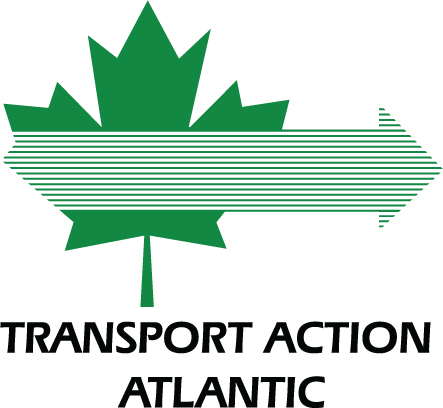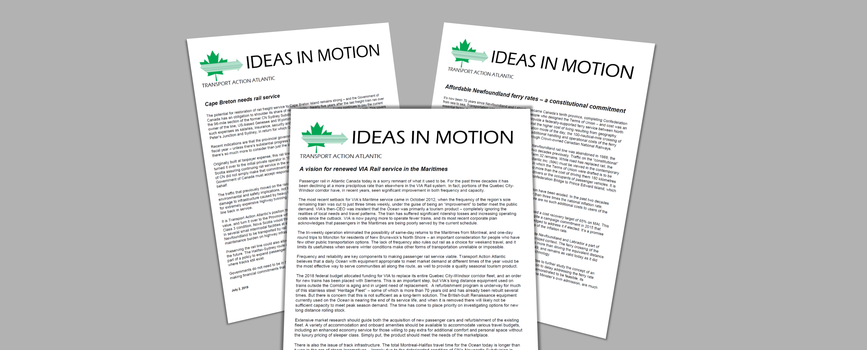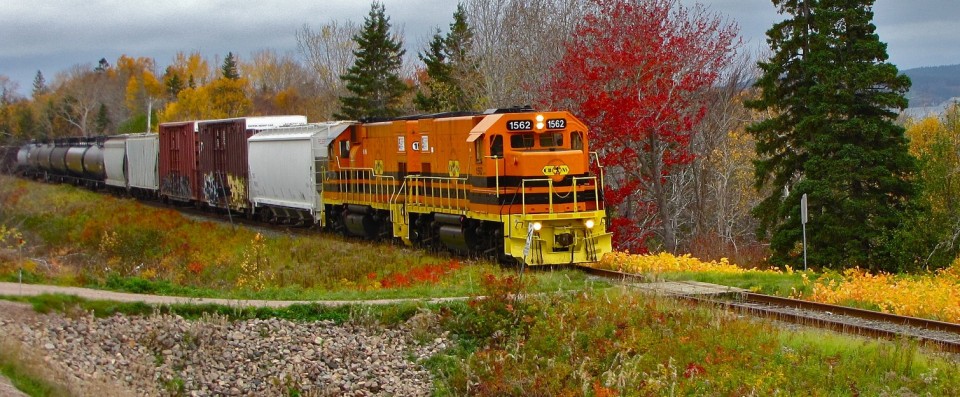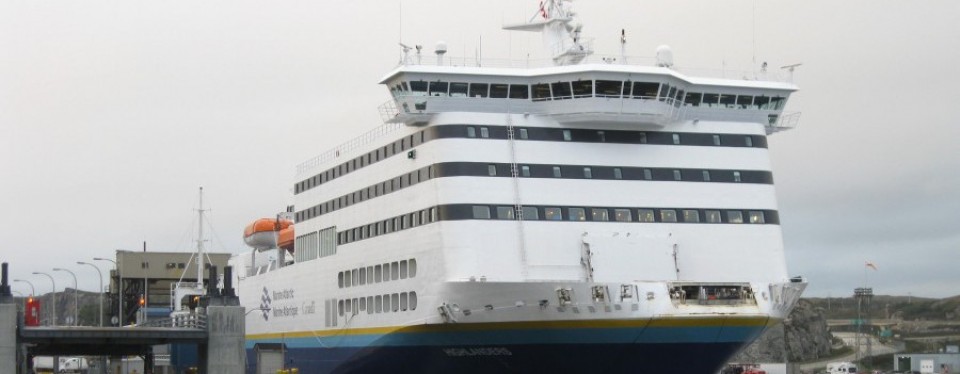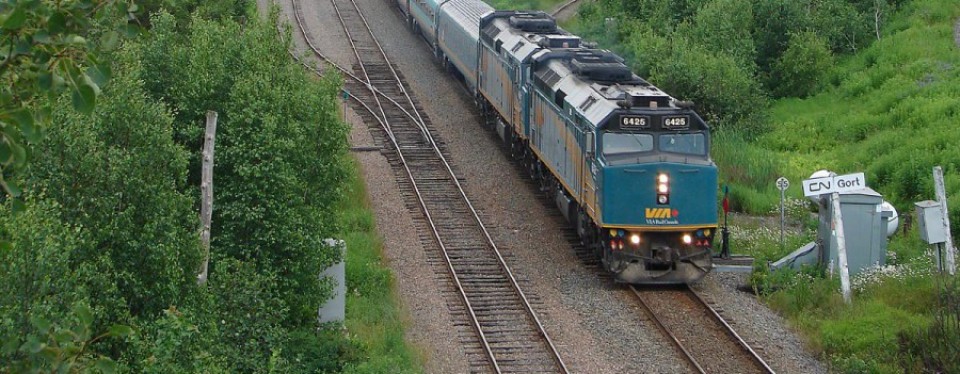This week’s federal budget had little to get excited about from a VIA Rail perspective – operating funding for the next 3 years will remain at levels that are barely enough to maintain the current system, and there’s no new funding for fleet replacement or other capital projects. One can always hope that these projects may still be in the plans for the near future, but as always, it’s worth contacting your MPs to continue to let them know that you support better funding for passenger rail.
Marine Atlantic also continues to be funded at current levels for the next 3 years.
However, there are some positives for public transportation in the budget, including continued plans to fund more urban transit projects across the country. In some cases, this might involve light rail or commuter rail projects. The details of those funding arrangements won’t be finalized until later in the year, but they are expected to continue much of the positive work that the infrastructure funding in last year’s budget began.
You can view the full budget document online here: http://www.budget.gc.ca/2017/docs/plan/budget-2017-en.pdf
Transport Action Canada (TAC), the national organization of which TAA is an affiliate, put out the following press release in response to the new budget:
Budget 2017 Underwhelming for Rail Passengers
“Another budget, another lost opportunity for rail passengers”, said Bruce Budd, President of Transport Action Canada in reaction to Finance Minister Morneau’s second budget. After no new money for re-equipping VIA last year, the Finance Minister repeats the same mistake this year with a nice platitude: “For nearly 40 years, VIA Rail Canada Inc. has connected passengers across Canada, and presently serves more than 400 communities on a 12,500-kilometre rail network.”
No mention of VIA’s request for $1.3B to purchase new rolling stock, urgently needed to replace equipment that is 25 to 65 years old. The only way to increase ridership and reduce VIA’s deficit is with more reliable and efficient new train sets, the only way to shift drivers out of their cars. The only budget commitment was to pay VIA’s operating deficit at nearly its current level, not new money.
Budd noted that “this is a government that says it is committed to fighting climate change, but then cuts spending on it by $750M this year and another $500M next year.” Transportation is one of the biggest consumers of fossil fuels. Passenger trains are five times more fuel efficient than the cars and ten times more than airplanes. Budd continues, “investing in new more reliable and fuel efficient trains is a no-brainer. This government needs to act.”
Budget 2017 does not even help short line railways, an essential component for farmers to get grain to market, nor does it help First Nation, like the consortium in northern Manitoba trying to purchase the tracks to Churchill.
This government talks about climate change, but forgets passenger and freight trains are an excellent part of the solution. The government should put dollars behind its rhetoric. “The bottom line is VIA needs new train equipment which would pay huge dividends for years to come,” concludes Budd.
The Canadian Urban Transit Association (CUTA) was somewhat more positive about the budget, focusing on the continued commitment to supporting transit projects. You can read their statement here: http://cutaactu.ca/en/news-media/latest-news/long-term-transit-commitments-take-shape-federal-budget
One other change in the budget is the end of the public transit tax credit, which was intended to help offset the cost of monthly transit passes; this credit was supported by both TAC and CUTA in the past, though there have been concerns about how much it would help in the absence of corresponding funding for transit improvements, and how much it actually benefited many transit users (it didn’t cover individual fares and tickets, for example, which restricted its applicability for many people). The government argues that the credit has not necessarily been effective at increasing transit use, and that the investments they plan to make will benefit more people than the tax credit.
Locally, the mayor of Halifax is hoping that the proposed federal infrastructure funding might be able to be used for commuter rail in Halifax: http://www.metronews.ca/news/halifax/2017/03/22/halifax-mayor-mike-savage-on-2017-federal-budget.html
